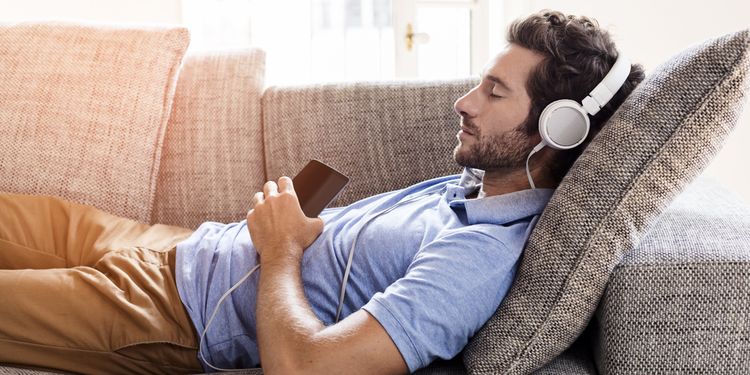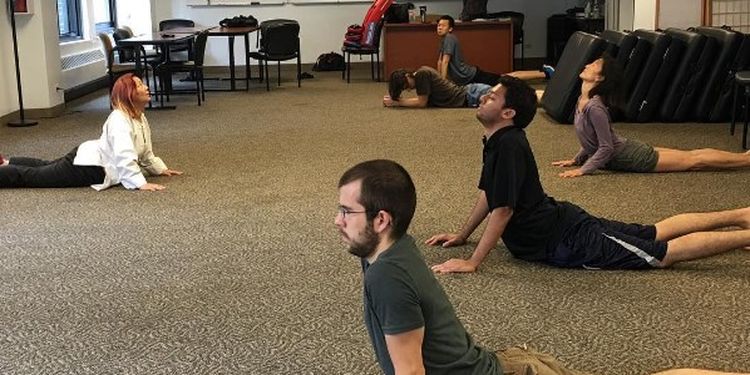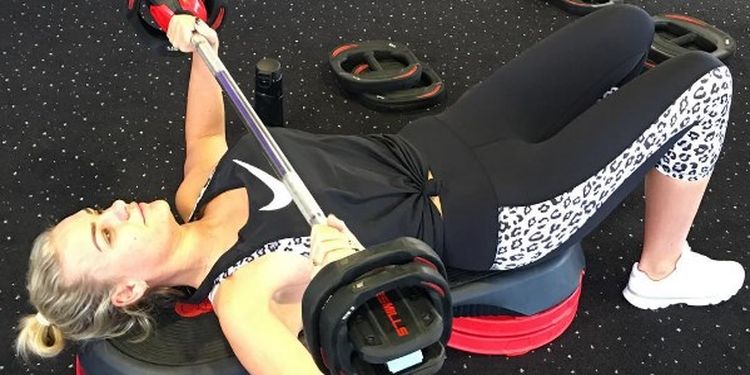5 Crucial Tips For Relieving Anxiety

It’s completely reasonable to feel a bit anxious during a stressful situation. You can likely remember a time when you’ve felt it: a deadline looming, driving in an unfamiliar city, going on a first date, getting the kids to activities on time. Anxiety can range from a little bit of uneasiness at the back of your mind to a complete sense of overwhelm.
It can be a useful response when you’re feeling threatened, stressed out, or under pressure, and it only becomes a problem when you can’t shake the feeling, especially when everything is going well and your stress response to a situation is out of proportion. Luckily, we have five ways that may help you combat anxiety.

Eat Well
We can’t say it enough— what you put in your body has a direct correlation to how you feel. When you’re feeling anxious, reaching for a donut or a cookie might seem great in the moment, but it’s probably not the best idea.
First of all, if you’re a stress eater, know that you’re not alone. 97% of women and 68% of men deal with food cravings, especially for foods high in sugar, fat, or carbohydrates. It’s when you use food as a panacea for dealing with anxiety that the long-term effects aren’t great.
And I’m not just talking about possible weight gain or a sugar crash. Foods high in fat and carbs cause a temporary uptick in your serotonin levels (serotonin makes you feel good). But studies show that over time, people who are unable to control their carbohydrate intake actually have decreased serotonin levels. The good news is that there are some healthy foods that also cause your serotonin levels to rise.
Make sure you get lots of wild fish, sunflower seeds, organic spinach, kale, and bananas to make you feel good for the long term. Get B vitamins too, as they help with serotonin production. Tryptophan can also help with increased serotonin, so eat organic turkey, pineapple, and eggs.

Listen
Music is a powerful antidote to anxiety and stress. Studies show that music relieves stress, reduces pain, and improves mood for patients in health care settings. As a massage therapist, I often put on New Age-y “chill out” music for my clients to relax to, but in truth, any music that you like can help lower stress levels.
When you feel yourself getting anxious, put on your favorite tunes and really get into them. If you’re at work or in a public setting, put in your earbuds for your very own private stress relief oasis. Otherwise, find your preferred streaming music, crank up the volume, and turn down your stress levels.

Breathe
When you start feeling anxious, your body has a very specific physiological response— your pulse and blood pressure quicken, your breathing gets shallow, and adrenaline is released. This is typically called “fight or flight,” and it’s our body’s long-remembered response from when we really did have to get the heck out or get eaten by some wild animal.
Now, when our bodies have that reaction (and we’re not being chased by a bear), it’s best to take a moment to reverse it by taking nice, deep, even breaths. Deep breathing causes the exact opposite of “fight or flight” to occur in our bodies. The pulse starts to slow, causing a drop in blood pressure, and we reenter the lovely “rest and digest” mode.
The next time you feel like you might freak out about something, take a moment to stop and take three deep breaths. Better yet, incorporate meditation or yoga into your life and have regular reminders to slow down and breathe.

Talk
Talking to someone in your life about the things that cause you stress is a fabulous way to help with anxiety. And by talk, I mean actual verbal communication with another human being. Text, chat, email, and social media are arguably integral parts of our lives, but these media can actually increase stress responses and don’t have the same effect as face-to-face conversation.
You can choose to talk to a trained therapist, a supportive partner, your bestie, or your hair stylist. Whoever it is, when you need to talk something through, make sure you take the time to do just that.

Exercise
Exercise is proven to help your brain feel better by releasing serotonin, improving focus, and lowering stress levels. Studies even show that the brain area where memory is measured is better post-workout.
In addition, because you’re strengthening your heart while exercising, you’ll have more energy in your everyday life. The main thing to remember about exercise is that you should do it to feel good and healthy, not to feel stressed out. There are so many options available: running, weight lifting, dancing, tai chi, barre exercise, high intensity training, yoga, throwing a frisbee, skiing, playing soccer, or walking the dog. What works for one person may not work for another. So choose a form of physicality that’s fun for you and just do it!

Summary
Stress can be a part of everyday life, but it doesn’t have to be an all-encompassing, debilitating occurrence. Your mind and body are both powerful tools that can be used to improve your health and well-being. Remember that you have the ability to keep anxiety at bay with good self-care and mindfulness.
“In the midst of movement and chaos, keep stillness inside of you.” – Deepak Chopra
